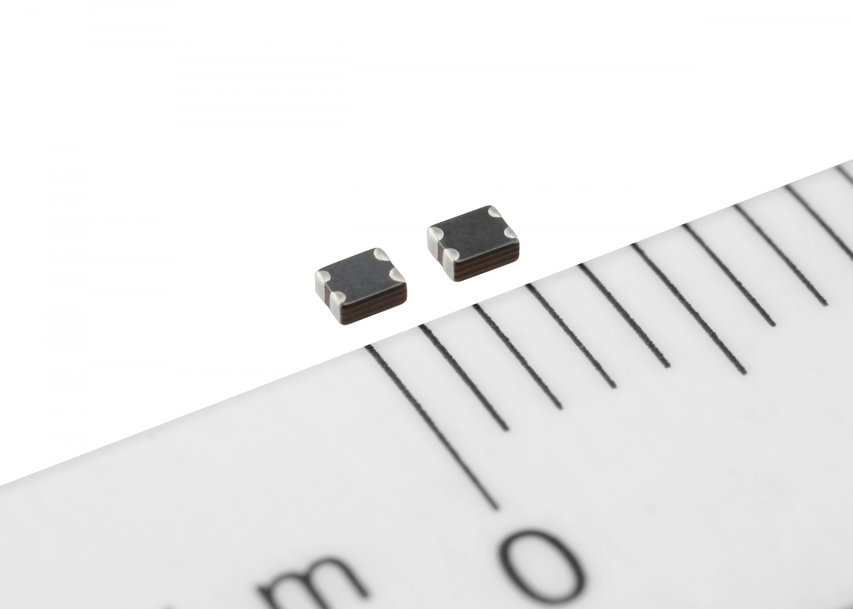EMC components: TDK offers miniaturized common-mode filters for automotive high-speed differential transmission
TDK Corporation (TSE:6762) has developed the KCZ1210DH series common-mode filters for automotive applications. This series provides a noise control function for high-speed differential transmission signal lines for automobiles and is available in 1210 case size (1.25 x 1.0 x 0.5 mm). Mass-production began in February 2022.

- Supports high-speed differential transmission of over 10 Gbps
- Maximum operating temperature of +125 ºC
- Conductive resin-based electrode structure achieves high durability
An increase in advanced driver-assistance systems (ADAS) has led to rapidly growing demands for forward-sensing cameras and around-view monitors. Common-mode filters are used in autonomous vehicle camera signal lines as anti-noise products. To handle large-volume video signals, the signal transmission rate will continue increasing to build safe and secure autonomous driving systems.
This product supports high-speed signals with over 10 Gbps transmission rates. Additionally, it contributes to noise control in the GHz band generated due to increased speed. By supporting an operating temperature range from -55 ºC to +125 ºC and adopting a conductive resin-based electrode, it controls product cracks from thermal shock while increasing durability against mechanical stresses like substrate strains. The outer dimensions are 1.25 (L) x 1.0 (W) x 0.5 mm (H), which saves board mounting space.
TDK is working on enhancing its inductive devices for ADAS, and moving forward, will expand its line of miniaturized common-mode filters, further supporting market demands for higher-speed differential signals.
Main applications
- High-speed interface
- HDMI1.4/ 2.0 (3.4 Gbps / 6 Gbps), LVDS/MIPI D-PHY (4.5 Gbps), USB3.0 / 3.1 Gen1 (5 Gbps), USB3.1 Gen2 (10 Gbps), Next Gen Interface (10 Gbps~)
- Advanced driver-assistance systems (ADAS)
Main features and benefits
- Supports high-speed differential transmission of over 10 Gbps
- Operable at 125 ºC, the maximum temperature
- Adoption of a conductive resin-based electrode reduces mechanical and thermal stresses.
- A compact size of 1.25 (L) x 1.0 (W) x 0.5 mm (H), to facilitate space saving
Key data

www.tdk.com

